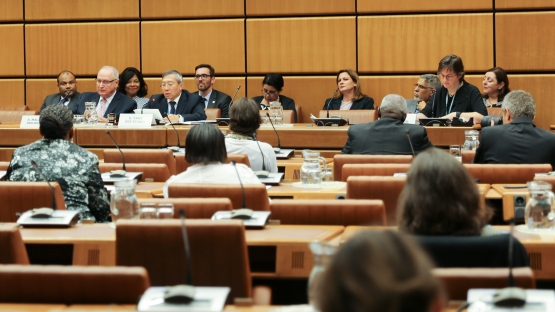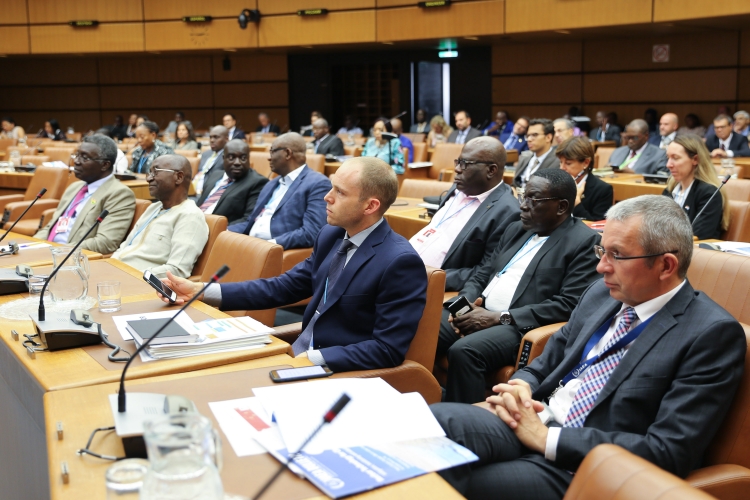Senior representatives from cancer centres around the world highlighted the importance of IAEA support for improving their services. The discussion was part of a side event focusing on ‘Delivering Results Against Cancer — Together we can make a change in fighting cancer,’ at the IAEA’s annual General Conference. It highlighted the support received by Member States in capacity building, technical advice and procurement of tools and equipment in the fight against cancer.
“Twenty-five percent of the Technical Cooperation programme is dedicated to supporting health projects, the majority of which is directed solely towards fighting cancer through technical support, training and mobilizing resources,” said Dazhu Yang, IAEA Deputy Director General and Head of Department of Technical Cooperation Department. “We are making a difference, but we know that much more will be required if we are going to overcome this challenge.”
Daniela Nika, General Technical Director of the University Hospital Centre “Mother Teresa” in Albania’s capital Tirana, highlighted the recent advances in cancer care in her country. “We combined government funding with IAEA assistance to increase radiotherapy services where I work. With the recent installation of a state-of-the-art LINAC radiotherapy machine and the intensive training for clinical staff in my hospital it is now possible to treat over 1 300 patients a year,” she said.
LINACs and cobalt-60 (Co-60) machines are two of the most commonly used technologies for external beam radiation therapy, a procedure in which high-energy radiation beams are used to kill tumour cells.
The IAEA has worked for many decades with its Member States and other international organizations, such as the World Health Organization (WHO), to support the safe and effective use of nuclear techniques in medicine, particularly in developing countries.
Sokha Eav, Head of Onco-Hematology Department at Cambodia’s first cancer centre at the Calmette Hospital in the capital Phnom Penh, acknowledged IAEA support. Until the centre was completed earlier this year, Cambodia had only one radiotherapy machine. “The Centre is a great step towards enhancing medical care in Cambodia,” he said. “This achievement has been possible thanks to continuous support from the IAEA in the provision of expertise related to the design of the Centre, the commissioning of the radiotherapy and nuclear medicine machines, as well as specialized academic and clinical training of health professionals.”
The Cambodian government dedicated resources to the construction of the centre, along with a contribution from the IAEA for fellowships, training and additional equipment including a gamma camera used for body scans and a shielded fume hood to prepare radiopharmaceuticals. Cambodia is now planning to have two more regional centres completed by 2025, through which 70 percent of the country’s population will have access to cancer care.







